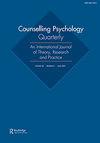A comparison of schema modes and self-beliefs related to social anxiety in individuals with subclinical social anxiety disorder and without social anxiety disorder: a preliminary finding
IF 1.5
Q3 PSYCHOLOGY, APPLIED
引用次数: 0
Abstract
Social anxiety disorder (SAD) is the most common anxiety disorder and has serious negative effects on multiple areas of life. The possibility of comorbidity with other disorders and malfunction in different domains of life exists in both full-blown and subclinical social anxiety. This study aimed to compare the schema modes and self-beliefs related to social anxiety in individuals with subclinical social anxiety disorder and without social anxiety disorder. Multistage cluster random and purposive sampling methods were used to select 100 students, 50 with and 50 without symptoms of social anxiety disorder. Participants were evaluated in regard to schema modes, self-beliefs related to social anxiety, social anxiety, depression, and generalized anxiety disorder. They were then evaluated clinically through Structured Clinical Interview for DSM-5 (SCID-5). Data analysis was performed by Multivariate Analysis of Variance (MANOVA) which showed that there was a significant difference between the groups of individuals with and without symptoms of social anxiety in schema modes and self-beliefs related to social anxiety (p < 0.001). The obtained results can contribute to a deeper understanding of the dimensions of vulnerability underlying subclinical social anxiety disorder in the relationship between symptoms of subclinical social anxiety disorder and schema modes.亚临床社交焦虑障碍与非临床社交焦虑障碍个体与社交焦虑相关的图式模式和自我信念的比较:初步发现
社交焦虑障碍(SAD)是最常见的焦虑障碍,对生活的多个领域都有严重的负面影响。在成熟的和亚临床的社交焦虑中,在不同的生活领域存在与其他疾病和功能障碍共病的可能性。本研究旨在比较亚临床社交焦虑障碍和非临床社交焦虑障碍个体与社交焦虑相关的图式模式和自我信念。采用多阶段整群随机抽样和目的抽样的方法,选取100名学生,其中有社交焦虑障碍症状的学生50名,无社交焦虑障碍症状的学生50名。对参与者的图式模式、与社交焦虑、社交焦虑、抑郁和广泛性焦虑障碍相关的自我信念进行评估。然后通过DSM-5 (SCID-5)的结构化临床访谈对他们进行临床评估。数据分析采用多变量方差分析(Multivariate analysis of Variance, MANOVA),结果显示有和没有社交焦虑症状的个体在图式模式和与社交焦虑相关的自我信念方面存在显著差异(p < 0.001)。本研究结果有助于深入理解亚临床社交焦虑障碍的脆弱性维度以及亚临床社交焦虑障碍症状与图式模式之间的关系。
本文章由计算机程序翻译,如有差异,请以英文原文为准。
求助全文
约1分钟内获得全文
求助全文
来源期刊

Counselling Psychology Quarterly
PSYCHOLOGY, APPLIED-
CiteScore
6.20
自引率
6.70%
发文量
30
期刊介绍:
Counselling Psychology Quarterly is an international interdisciplinary journal, reporting on practice, research and theory. The journal is particularly keen to encourage and publish papers which will be of immediate practical relevance to counselling, clinical, occupational, health and medical psychologists throughout the world. Original, independently refereed contributions will be included on practice, research and theory - and especially articles which integrate these three areas - from whatever methodological or theoretical standpoint. The journal will also include international peer review commentaries on major issues.
 求助内容:
求助内容: 应助结果提醒方式:
应助结果提醒方式:


